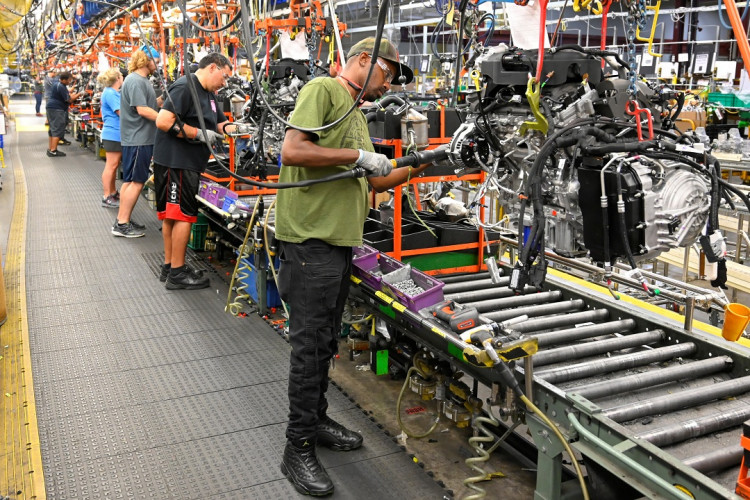The United Auto Workers (UAW) union, representing a significant portion of the American auto industry workforce, has intensified its strike actions against two of the "Big Three" automakers, General Motors (GM) and Ford. This move comes as negotiations over wage and benefit improvements continue to stall, despite the automakers' record profits in recent years.
UAW President Shawn Fain announced the expansion of the strike during a Facebook Live session. Effective from noon Eastern Time, the union has added GM's Lansing Delta Township Assembly and Ford's Chicago Assembly to the list of facilities experiencing work stoppages.
"An additional 7,000 UAW members at these two plants will join the strike at Noon Eastern Time." UAW said in its statement on Friday. This decision brings the total number of striking UAW members across all three automakers, including Stellantis, to over 25,000, spread across 43 facilities in 21 states.
While the union had initially initiated targeted work stoppages at one assembly plant for each company, the recent expansion indicates a strategic move to increase pressure on the automakers. The union's decision to expand the strike was driven by the perceived lack of "meaningful progress" in the ongoing negotiations, despite the union's willingness to engage in constructive dialogue.
GM responded critically to the UAW's decision, with Gerald Johnson, GM's executive vice president of global manufacturing, stating, "Calling more strikes is just for the headlines, not real progress." He emphasized GM's commitment to reaching an agreement that benefits all parties involved.
Stellantis, on the other hand, seems to be on a more positive trajectory with the UAW. The union acknowledged the significant progress made in discussions with Stellantis, particularly concerning issues like the 2009 COLA, the right to not cross a picket line, and the right to strike over product commitments and plant closures.
"We have made progress in our discussions, but gaps remain," the company said in a statement. "We are committed to continue working through these issues in an expeditious manner to reach a fair and responsible agreement that gets everyone back to work as soon as possible."
President Joe Biden, who recently visited a picket line, expressed his support for the UAW members, highlighting their significant contributions to the auto industry, especially during its crisis in 2008. He emphasized that as the companies now thrive, the workers deserve a fair share of the success.
The UAW's demands stem from the record profits the Big Three have amassed over the past decade. The union seeks to rectify the concessions made during the financial crises of 2007 and 2009, demanding improved wages, pensions, and healthcare benefits.
As the strike continues, the UAW remains hopeful for a resolution that reflects the sacrifices and contributions of its members over the years. The union's actions underscore a broader sentiment of workers seeking fair compensation and benefits in the face of rising corporate profits.




